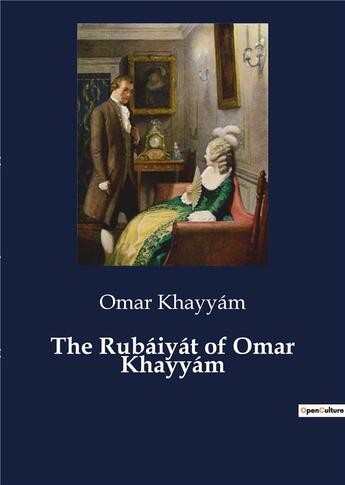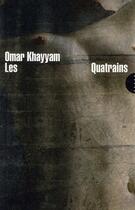-
Date de parution : 23/07/2023
-
Editeur :
Culturea
-
EAN : 9791041806409
-
Série :
(-)
-
Support :
Papier
Résumé:
Omar Khayyam was a medieval Iranian mathematician, philosopher, scholar, and poet. He was thought to have composed over 1,000 rubaiyat, or quatrains, in his lifetime. Many different scholars have translated selections of Khayyam's quatrains, but Edward FitzGerald's translation remains the most... Voir plus
Omar Khayyam was a medieval Iranian mathematician, philosopher, scholar, and poet. He was thought to have composed over 1,000 rubaiyat, or quatrains, in his lifetime. Many different scholars have translated selections of Khayyam's quatrains, but Edward FitzGerald's translation remains the most beloved.
FitzGerald's translation is interesting in that it isn't a literal translation-rather, FitzGerald took significant artistic license in his interpretation. Thus it's tough to say if we should call this a translation of the Rubaiyat, or poems by FitzGerald based on or inspired by Khayyam's quatrains.
Whatever we call it, this translation is a bright and lyrical celebration of the joys and beauties of everyday life. FitzGerald's work has remained popular for hundreds of years precisely because of its uplifting and wondrous quality.
This ebook is based on the fifth edition, which is very similar to the fourth edition, the last edition to be published in FitzGerald's lifetime. The fifth edition was published posthumously based on FitzGerald's notes.
Donner votre avis









